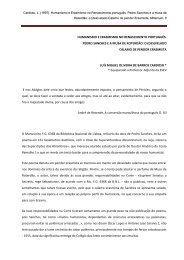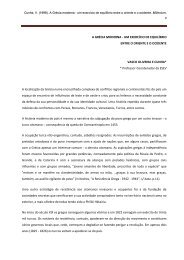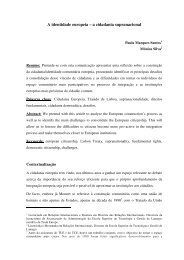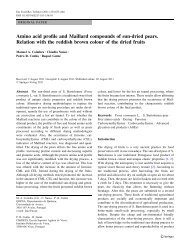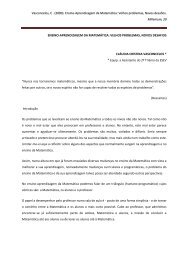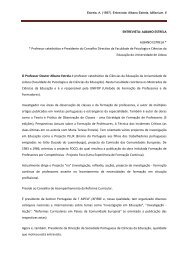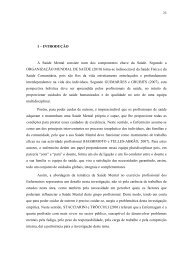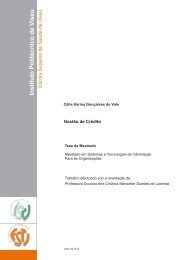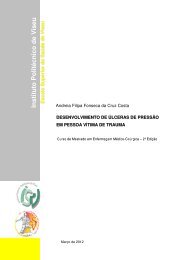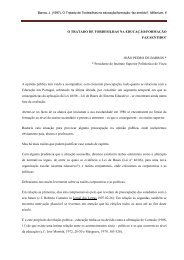Rationales for Internationalisation.pdf
Rationales for Internationalisation.pdf
Rationales for Internationalisation.pdf
You also want an ePaper? Increase the reach of your titles
YUMPU automatically turns print PDFs into web optimized ePapers that Google loves.
Wit, H. (1998). <strong>Rationales</strong> <strong>for</strong> <strong>Internationalisation</strong> of Higher Education. Millenium, 11More emphasis on professional education, on continuous education, on new areas such asenvironmental studies, in<strong>for</strong>mation science, etc. require a comparative and international dimension,coming from outside, but also from demands of faculty and students. This will be a driving <strong>for</strong>ce <strong>for</strong>internationalisation that will be as important as the external factor.ReferencesKerr, Clark, "Higher Education Cannot Escape History, Issues <strong>for</strong> the Twenty-First Century", StateUniversity of New York Press, 1994Deutsch, Karl W., "Nationalistic responses to Study Abroad", article reprinted in the InternationalSpectator, NAFSA, Washington D.C., Volume 6, number 3, Spring 1997Knight, Jane and Hans de Wit, "<strong>Internationalisation</strong> of Higher Education in Asia Pacific Countries", EAIE,Amsterdam, 1997Neave, Guy, "The European Dimension in Higher Education, an historical analysis", BackgroundConference Document, Enschede, April 7-9, 1997Wit, de Hans, "Strategies <strong>for</strong> <strong>Internationalisation</strong> of higher Education, a Comparative Study of Australia,Canada, Europe and the United States of America", EAIE, Amsterdam 1995________I - This article is partly based on an address at the conference "The International Universities: Global andLocal roles", April 3-5, 1998, Richmond, the American International University in London.II - The term international education has become so common, that it is not easy to avoid it, and also Iuse it frequently as an alternative <strong>for</strong> internationalisation of higher education, such as in the Journal ofStudies in International Education, I am the editor of, and in the name of the European Association ofInternational Education, I was co-founder of.III - This also shows that rationales <strong>for</strong> and perspectives on internationalisation may differ bystakeholders.IV - These critical observations to the economic rationales <strong>for</strong> internationalisation of higher education,so dominant at the moment, do not imply a plea against these economic rationales, they are onlypresented as concerns to take into account when internationalisation strategies are developed on thebasis of economic rationales.



